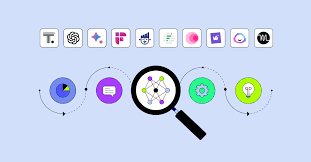This AI Deal Will Let Actors License Digital Voice Replicas

As the entertainment industry continues to intersect with emerging technologies, a groundbreaking deal has just been struck that allows actors to license their digital voice replicas. This landmark arrangement could forever alter not only how we experience media, but also how performers manage their careers.
Voice replication technology, which uses artificial intelligence to mimic an individual’s speech patterns, tone, and emotional inflections, has reached a level of sophistication making it nearly indistinguishable from actual recordings of people speaking. With this new deal in place, actors no longer need to be physically present in a studio to contribute their vocal talents to a project. Instead, they can license the use of their digital voices, enabling studios to produce content featuring actors’ distinct vocals without requiring them on set.
This advancement provides numerous opportunities as well as challenges. On the one hand, it allows for flexibility and more efficient content creation. Imagine animated films or video games being produced with actor’s voices while they are on location for other projects, or even after they’ve retired. Furthermore, it has the potential to preserve the voices of beloved actors for posterity or when their physical voice might change or degrade over time.
On the other hand, this technology raises important questions about rights and royalties. The actors’ unions and legal representatives have been quick to enter into discussions about how these digital voice replicas should and can be used ethically and how actors can ensure they are fairly compensated for these uses. There is also an ongoing conversation regarding the implications for deepfake technology and how it may affect personal privacy and consent.
Many in the industry see this as an inevitable step into the future – one where digital assets become as significant as physical performance. It offers a way for performers to further monetize their craft while providing creators with new tools to innovate. Yet, this deal represents just the beginning; its ramifications will be observed closely as lawmakers, industry professionals, and audiences alike adapt to these new realities in the realms of performance and intellectual property rights.



